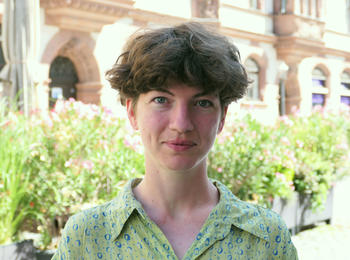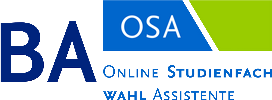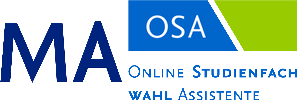Dr. Ismay Milford

Friedrich-Meinecke-Institut
Wissenschaftliche Mitarbeiterin
Global History; History of East Africa; Cold War History; Intellectual History
Neuere Geschichte/Global History
Raum A.361
14195 Berlin
Ismay Milford is a historian of twentieth century Eastern Africa, particularly interested in the region’s role within global histories information, environment and technology. Her broader research interests include social and intellectual histories of print, religion, education, activism and regionalism.
She joins the Friedrich Meinecke Institute as a Marie Skłodowska-Curie Postdoctoral Fellow, working on a project titled ‘INFOSOC: East African professionals in the making of the global information society’, funded by the European Commission.
Her first monograph, African Activists, published in 2023, argues that studying global anticolonialism from the perspective of a cohort of young, mobile activists from East and Central Africa can highlight the practical barriers and frustrations of transnational paperwork and international lobbying during the 1950s-60s. These difficulties were characteristic of the period of intense exchanges across the decolonising world that historians have scrutinised in the past decade. She was interviewed about the book for Africa Is a Country and the New Books Network.
Before moving to Berlin, she held postdoctoral positions at the Universität Leipzig Research Centre Global Dynamics (2022-23) and at the University of Edinburgh (2019-22), as part of the Leverhulme Trust-funded project ‘Another World? East Africa and the Global 1960s’. She was awarded her PhD from the European University Institute, Florence, in 2019 and has held visiting fellowships at Tampere University, Ludwig-Maximilians-Universität (Munich), Makerere University (Kampala), and the University of Dar es Salaam.
INFOSOC:East African professionals in the making of the global information society
(Marie Skłodowska-Curie Fellowship, 2023-25)
INFOSOC studies the lives and work of a group of people I call ‘information professionals’ – librarians, journalists, broadcasters, technicians – as a route towards a better understanding of how the contemporary information society (as a concept and a lived reality) emerged in a setting of unequal global structures during the second half of the twentieth century. Information talk had high stakes in post-independence East Africa: discussing what ‘information’ meant, how to manage it, and how to gain from it was central to debates across many levels of society concerning expectations of independence and the role of the region in the precarious Cold War global order.
During the 1970s, a group of non-aligned states, many of which had recently gained formal independence from European colonial powers, called for a ‘New World Information and Communication Order’. The movement’s spokespersons decried the monopolies over flows of news and information enjoyed by the United States, Europe and the Soviet Union, while Western powers accused it of propping up authoritarian regimes. Exciting new research on the topic is demonstrating the nuances, conflicts and significance of the many organisations and initiatives involved, but we still know relatively little about how these debates manifested outside of international conference halls.
Focusing on professional lives, particularly training programmes, is a useful way to understand the broader dynamics at play. Through a series of case studies using archives in Kenya, Uganda and Tanzania, this project will ask how East African information professionals contributed to the codification of information in disciplines like Mass Communication and Information Science, how they sought leverage between national, regional (East African), and international organisations, and how they understood their work in relation to global information politics.
African activists in a decolonising world: The making of an anticolonial culture, 1952-1966 (Cambridge University Press, 2023), https://doi.org/10.1017/9781009277020.
Peer-reviewed articles and book chapters
‘Working for the Wireless World: Radio Uganda Technicians and the Wo/Manpower of 1970s Cosmopolitanism’, Journal of Global History (2023) https://doi.org/10.1017/S1740022823000207.
‘Journalism training in 1960s East Africa, or the transferability of a stapler’, in Damiano Matasci and Raphaëlle Ruppen Coutaz (eds.) Educational Internationalisms in the Global Cold War (Routledge Cold War History series, 2023) forthcoming.
‘A New World in the Swiss Alps: Moral Re-Armament, Religious Internationalism and African Decolonisation’, Cultural and Social History, 19.5 (2022), 587–603 https://doi.org/10.1080/14780038.2022.2106613.
‘Just an African radical? A Zambian at the edge of the Third World’, in Laura Almagor, Gunvor Simonsen, and Haakon A. Ikonomou (eds.), Global Biographies (Manchester University Press, 2022).
‘On the Unreachability of Anti-Colonial Internationalism’, Comparativ, 32.2 (2022), 208–15, https://www.comparativ.net/v2/article/view/3236.
‘African Internationalisms and the Erstwhile Trajectories of Kenyan Community Development: Joseph Murumbi’s 1950s’, Journal of Contemporary History (2021) doi:10.1177/00220094211011536. Co-authored with Gerard McCann.
‘Another World? East Africa, Decolonisation, and the Global History of the Mid-Twentieth century’, Journal of African History, 62:3 (2022) https://doi.org/10.1017/S0021853721000566. Co-authored with Emma Hunter, Daniel Branch, and Gerard McCann.
‘Federation, Partnership, and the chronologies of space in 1950s East and Central Africa’, The Historical Journal, 63:5 (2020), 1325-48, doi:10.1017/S0018246X19000712.
‘More than a Cold War scholarship: East-Central African anticolonial activists, the International Union of Socialist Youth, and the evasion of the colonial state (1955-65)’, Stichproben: The Vienna Journal of African Studies No. 34 (2018), Open Access.
Other publications
Lead editor, East Africa’s Global Lives, Open Access biographies and teaching resource https://globaleastafrica.org/global-lives
Contribution to H-Diplo roundtable ‘Making and Breaking Global Order’ (2023) https://issforum.org/forums/Forum-2023-1.pdf
‘Roundtable: the archives of global history in a time of international immobility’, Historical Research (2022), co-edited and introduced with Sara Honarmand Ebrahimi, https://doi.org/10.1093/hisres/htac015
Review of Pedro Monaville, Students of the World (2023) https://www.hsozkult.de/publicationreview/id/reb-116904
Review of Daniel Tödt, The Lumumba Generation (2023) https://www.connections.clio-online.net/publicationreview/id/reb-114541
Review of Su Lin Lewis and Carolien Stolte, The Lives of Cold War Afro-Asianism (2023) https://networks.h-net.org/node/28443/discussions/12874963/h-diplo-review-essay-517-milford-stolte-lewis-ed-lives-cold-war
Review of Past Imperfect: Time and African Decolonization, 1945-1960, by Pierre-Philippe Fraiture, Canadian Journal of African Studies (2022), https://doi.org/10.1080/00083968.2022.2090670
Review of Revolutionary State-Making in Dar es Salaam: African Liberation and the Global Cold War, 1961-74, by George Roberts, Cold War History (2022), https://doi.org/10.1080/14682745.2022.2030899



